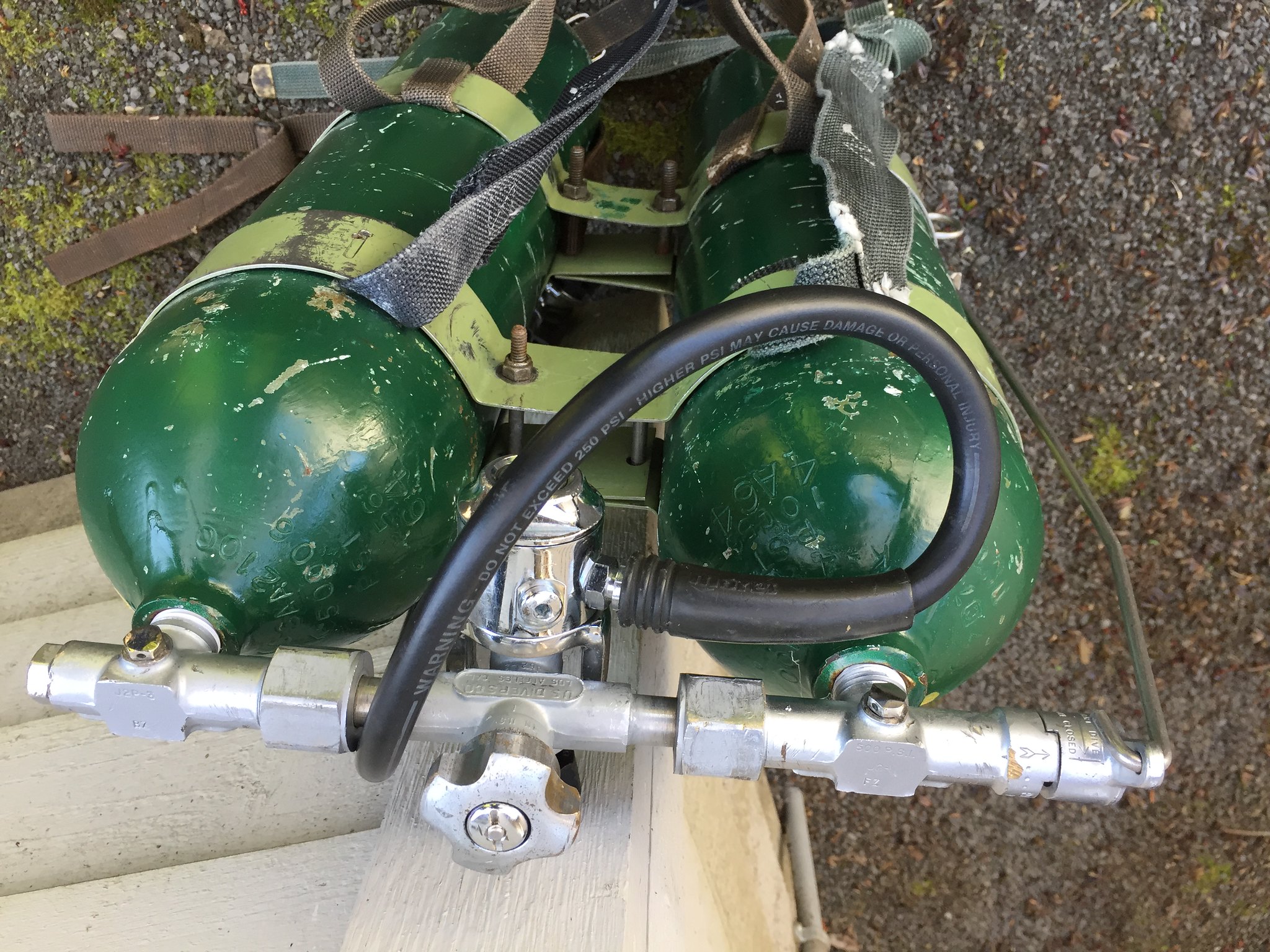A strange thing happened: When I was separating my LP46 doubles this weekend (to switch the hardware over to my new LP50's and to have the LP46's hydro'd), one of the bolts seized up and would not budge after I had backed it off about an inch. Using my quarter-inch-drive socket wrench and box-end wrench, I was unable to get it to budge either forward or backward.
Today I took it to my RX-7 mechanic to have him use his impact tools on it. He, too, couldn't get the nut to budge. This is stainless steel hardware (from Piranha), only a few months old, and only dove in the swimming pool a couple of times.
Strange. (I am thinking a thread broke off under the nut, and things seized up when I was torquing things.)
My mechanic cut the bolt.
Lesson learned: I ordered a new bolt kit from Piranha. I have "always" kept a replacement nut, washer, and wing nut in my save-a-dive kit. From now on I will keep a complete replacement bolt assembly in my save-a-dive kit.
rx7diver
It is stainless. You tried to use it without lube. Stainless is one of the worst necessary evils ever created for fasteners.
Next time you are in a hotel, grab one of the little bars of soap and run it down the threads before you tighten or loosen stainless. I work in stainless fasteners every day, you always soap the threads before use. If not, you get to buy new hardware.
Don't use oil or never seize, it makes a mess and gets on your dive gear. Lots of dive gear can be destroyed with oil.
If you want it to stay on there awhile, use beeswax or some type of wax. Bar soap works great and rinse off clean when you are diving. Just remember to run it up the threads before you go to take it back apart next year. It doesn't take much, a quick swipe will do.
It also works great on drysuit zippers.
This is why hotels give you two bars. One to use in the shower and one to take home for your scuba diving hobby.







